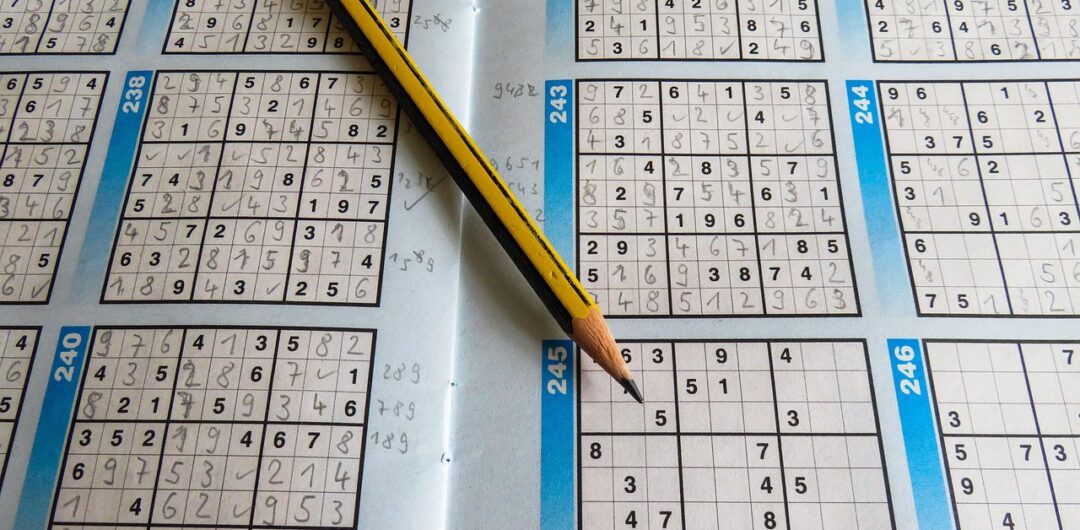Games are often seen as a big form of entertainment and a way to relax. However, certain games do a lot more than pass the time.They will actively engage your brain and can make you smarter. These games will challenge your memory and concentration. They will also challenge your strategy and problem-solving abilities.
It doesn’t matter if you are trying to boost your IQ, or improve your focus; the right games are going to give your brain a serious workout. Here are some of the most effective games that can make you smarter- use them to enhance your cognitive function.

Chess: The King of Strategy
Few games can rival the intellectual reputation that chess brings. Played by millions worldwide, chess is all about strategy and it has captivated great minds for centuries.
It is a two-player battle of wits. Each move matters and every piece serves a specific purpose. The game requires forward thinking, and pattern recognition. You will also need tactical precision.
Studies have shown that playing chess will improve your cognitive abilities. This development happens in both children and adults.
It enhances memory because it requires players to remember complex sequences. They will also need to reference historical strategies.
Chess sharpens concentration, a single moment of distraction can cost the player the game. Chess often demands abstract thinking and players must visualize future moves.
They need to consider all the possible outcomes and stay several steps ahead. Chess has a lot of emotional benefits as well. It teaches patience, and discipline.
Grandmasters often say that losing a game of chess is the fastest path to improvement. Analyzing your losses will help to refine your strategies.
For children, studies have linked chess to high academic performance. This is seen particularly in mathematics and reading comprehension.

Sudoku: Sharpening Logical Reasoning
Sudoku is a numbers puzzle and it relies on logic a lot more than math. Each puzzle presents a grid and numbers must be placed in a way that will satisfy specific rules.
Though the mechanics are quite simple, solving a difficult Sudoku will require you to have some keen pattern recognition as well as deductive reasoning.
Sudoku will improve your memory by forcing players to remember numerical placements. They will also need to have rule-based constraints.
It also enhances attention to detail as well. One incorrect number can disrupt the entire grid in a Sudoku game. Playing regularly will improve your ability to concentrate. It can also assist you with solving problems systematically.
This game is especially helpful for those who are looking to improve mental clarity. It can als help to combat age-related cognitive decline. It’s a quick, and portable, daily brain training game.

Crossword Puzzles: Building Verbal Intelligence
Crossword puzzles are another classic tool that can help with brain development. They improve vocabulary, spelling, as well as general knowledge. Players will need to recall synonyms, cultural references, as well as obscure facts to fill in each square.
This will stretch long-term memory and build neural connections that are related to language.
Crosswords also help to promote lateral thinking. The clues will often involve wordplay. This forces solvers to think creatively.
They have to consider multiple meanings. For older adults, crosswords are often associated with delayed onset of dementia an it can also improve verbal fluency.
The challenge of a tough crossword will encourage perseverance as well as problem-solving. Whether you find yourself solving the New York Times puzzle or a themed crossword that you find in a magazine, the intellectual workout is going to be beneficial.
Brain Training Apps: Custom Cognitive Workouts
In recent years, digital brain-training apps have become popular. These apps offer a variety of games that target specific cognitive skills such as memory. It also focuses on attention, speed, as well as flexibility.
Each session is designed in a way that pushes your brain just enough to cause growth. Unlike traditional games, brain training apps will adapt to your skill level. They will track your progress over time. This personalized approach is what makes them an effective tool for improving your mental sharpness.
While there are some experts who debate the long-term benefits of these apps, some have suggested that consistent use can improve cognitive performance.
Go: The Game of Infinite Possibilities
Go is a strategy game that started in ancient China. It is considered one of the most complex board games in the entire world.
It is played on a 19×19 grid. The objective of the game is to control territory by placing stones on the board. Despite having simple rules, Go has more possible configurations than the atoms in the universe.
Mastering Go requires some intense concentration. Spatial awareness, and strategic depth is also required.
Unlike chess, where material value is the key, Go emphasizes balance, as well as patience, and influence.
Players must constantly try to evaluate the entire board. They must foresee the consequences of moves, and also adapt to their opponent’s evolving strategy.
Go effectively trains intuitive thinking. High-level players will develop a sense for the board that comes from years of pattern recognition. This mix of intuition and logic is what makes Go one of the most mentally enriching games that was ever invented.

Scrabble: Expanding Your Lexicon
Scrabble combines language skills with a lot of strategy. Players can use letter tiles to form words. This will earn them points based on word length and placement. It’s a fun way for you to build vocabulary and improve your spelling.
But Scrabble also trains mathematical thinking as well. Strategic placement of high-value letters and use of bonus squares will require that you do planning and arithmetic. Defensive play such as blocking your opponent’s access to scoring area will add another layer of complexity to the game.
Playing Scrabble regularly will enhance memory, especially the recall of obscure words. It also strengthens mental agility by forcing players to adapt. They can do this when tiles or opportunities become limited.

Memory Card Games: Training Recall
Games like Concentration (or Memory) are simple yet powerful tools that can improve your short-term memory. Players can flip over cards to find matching pairs.
This tests their ability to recall positions as well as symbols.
This kind of repetition builds neural pathways that will improve working memory and attention as well. It’s especially effective for children and seniors who need to maintain cognitive agility.
Digital versions of memory games will often include additional layers such as color sequences or sound patterns, so that there is extra stimulation.
The ability to be able to quickly store and retrieve visual information is useful not only in games but in everyday tasks as well. It is great for remembering names, or even directions.

Puzzle Games: Strengthening Problem-Solving Skills
Puzzle games promote fluid intelligence. This is the ability to solve new problems without having to rely on pre-learned knowledge. They also improve hand-eye coordination, adaptability, as well as perseverance.
Solving intricate game puzzles is going to enhance creative problem-solving by encouraging players to think outside the box. It is going to give a mental boost that spills over into work, daily life and school.
Card Games: Enhancing Strategy and Focus
Traditional card games like Bridge, Poker, and even Solitaire will also go a long way in promoting brain health. Bridge, in particular, is often associated with improved memory as well as logical reasoning.
This is especially true among older adults. It’s a game of coordination and strategy. Players are charged with remembering played cards,they must infer others’ hands, and adjust tactics accordingly. This makes the game great for strategizing and focusing.
